An inductor and capacitor are both components used in electronic circuits, but they have different functions. An inductor is a coil of wire that stores energy in a magnetic field. A capacitor is two metal plates separated by an insulator.
In this article, we will discuss the differences between inductors and capacitors, and provide tips on how to choose the right one for your project.
What are Capacitors?
This energy can be used to help circuits work better and smoother. Capacitors have two metal plates separated by an insulator.
When voltage is applied, the capacitor accumulates charge on each plate. The amount of charge that the capacitor can store is proportional to the surface area of the plates, and the distance between them. The unit of capacitance is the Farad (F). [1]
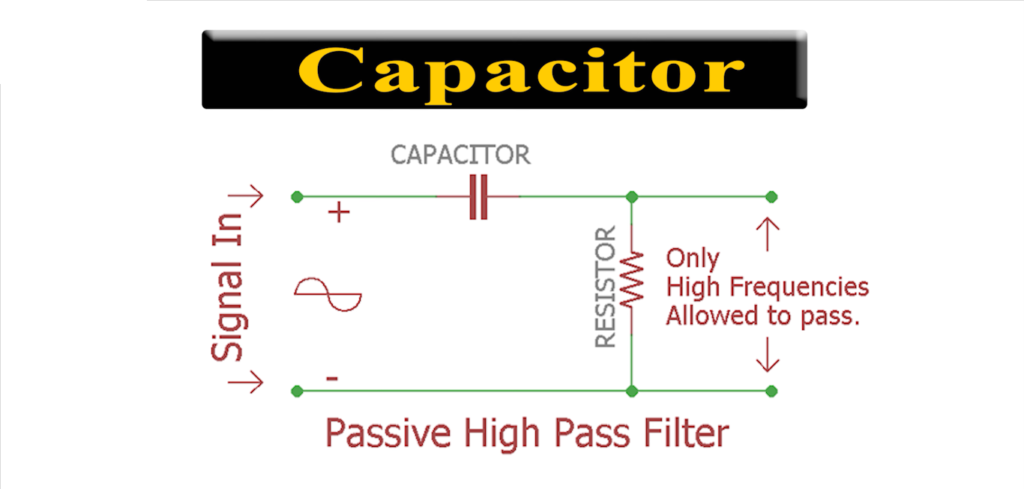
What are Inductors?
This energy can be used to filter out unwanted frequencies, or to store and release energy at specific times. The unit of inductance is the Henry (H).
How do Capacitors and Inductors Differ?
The main difference between capacitors and inductors is their function. A capacitor stores energy in an electrical field, while an inductor stores energy in a magnetic field. This affects how they are used in circuits. Capacitors are typically used to filter out noise, while inductors are mainly used to store and release energy.
When choosing a component for a circuit, it is important to consider application. Depending on what the project is, you might need a capacitor or an inductor. For example, if you need to filter out high frequencies from a signal, then you would use a capacitor. If you need to store and release energy in pulses, then an inductor would be better.
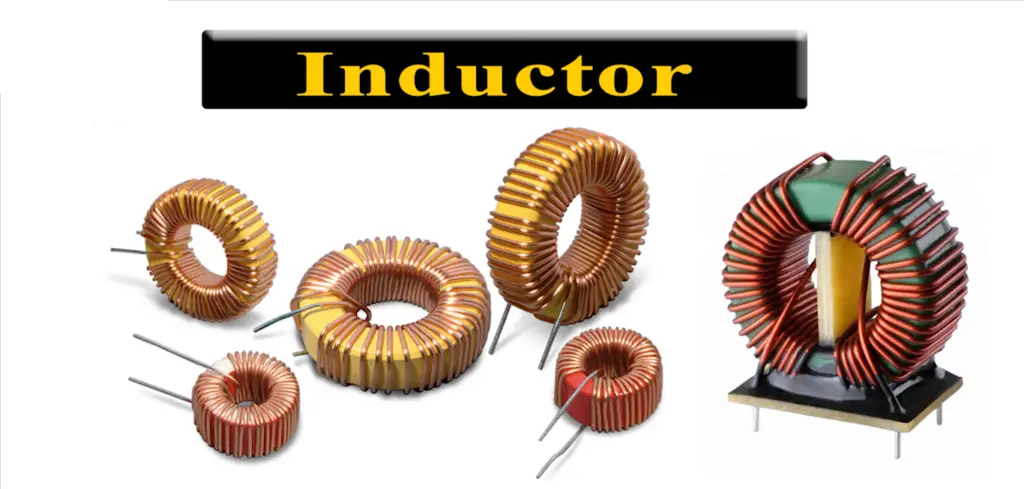
Overall, capacitors and inductors are very useful components that can help make your projects more efficient. By understanding the differences between them, you will be able to choose the right component for your project. For example, capacitors are good for storing energy, while inductors are good for filtering out noise.
Physical Design of Capacitors vs. Inductors
The physical design of capacitors and inductors also differs. Capacitors are usually made of two metal plates that are separated by an insulator. Inductors usually have a coil of wire. This affects how they look in circuits; capacitors are usually small, flat components, while inductors tend to be larger cylindrical components. [1]
Voltage vs. Current
The final difference between capacitors and inductors is how they each affect voltage and current. Capacitors affect voltage, while inductors affect current.
This affects how they are used in circuits; capacitors are typically used to filter noise, while inductors are mainly used to store and release energy.
AC and DC Currents
Inductors and capacitors can be used in both AC and DC circuits. However, they have different effects on each type of current. In AC circuits, inductors tend to reduce the amplitude of the current, while capacitors block high frequencies.
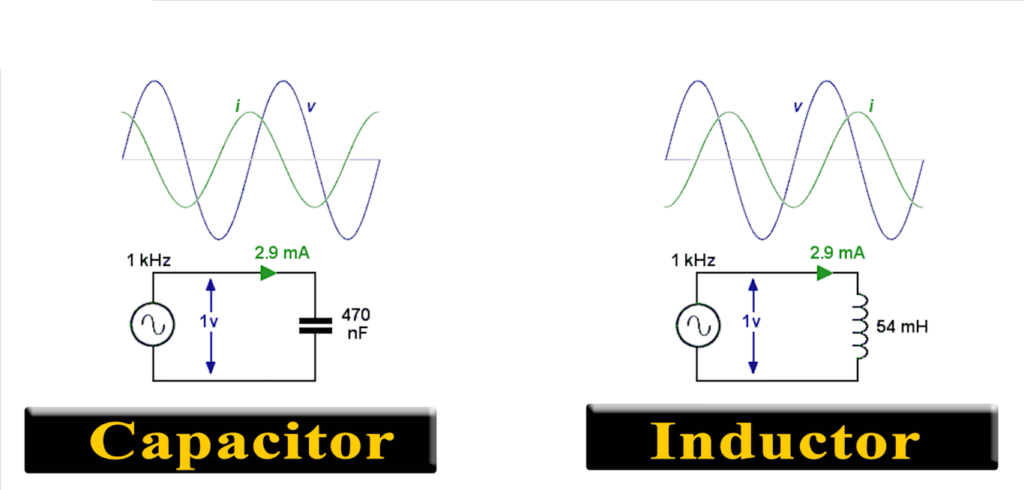
In DC circuits, inductors tend to slow down changes in voltage, while capacitors filter out unwanted noise.
Frequencies of Capacitors and Inductors
Capacitors and inductors react differently to different frequencies. Capacitors usually block high frequencies while low frequencies can go through. Inductors usually reduce the amplitude of high frequencies.
This means that they are used in different ways in circuits; capacitors are often used as filters, and inductors can be used to reduce noise. [1]
Applications of Capacitors and Inductors
One common use of capacitors and inductors is in filtering circuits. Capacitors are often used to get rid of high-frequency noise, while inductors can be used to reduce the amplitude of high frequencies. They are also used in many other applications such as power supplies, signal processing, and amplifiers.
Overall, capacitors and inductors are two very important components that can be used in a variety of circuits. By understanding their differences and applications, you will be able to choose the right one for your project.
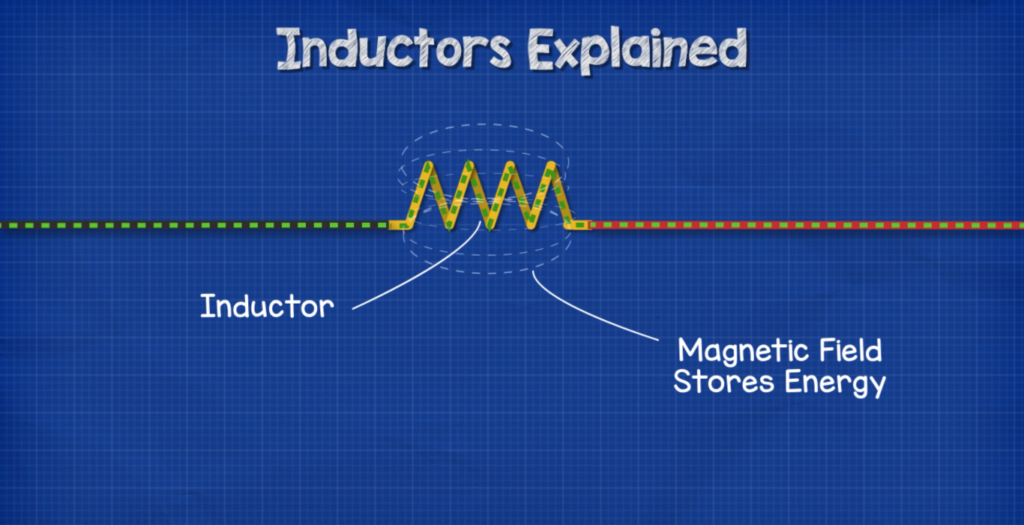
They each have different effects on current and voltage, so it is important to understand how they work before using them in a circuit.
Capacitor Uses
Capacitors are used in many different applications, such as filtering out noise in electronic circuits, and storing energy for later use. They can also be used to adjust the timing of a circuit, or to act as a voltage divider. [2]
Inductor Uses
Inductors are mainly used for their ability to store and release energy. They are used in many different applications, such as storing power for later use, or to adjust the timing of a circuit. They can also be used to reduce noise in circuits by blocking high frequencies.
Unit of Measurement
The unit of measurement for capacitors and inductors is the Farad (F) and the Henry (H), respectively. The Farad is the unit of electrical capacitance, while the Henry is the unit of magnetic inductance.
Choosing the Right Component
The right component for your project will depend on what you are trying to achieve. If you need a component that can filter out noise, then a capacitor is the best choice. If you need a component that can store and release energy, then an inductor is the way to go.
When selecting a component for your project, you should think about what you want the component to do. If you need noise filtering, then a capacitor might be the best option. If you need something that can store and release energy, then an inductor might be better suited.
Once you know what type of component you need, then you can choose the appropriate one for your project.
Inductors and capacitors are both important components in any circuit. Knowing the difference between them is key to making sure that your circuit works properly.
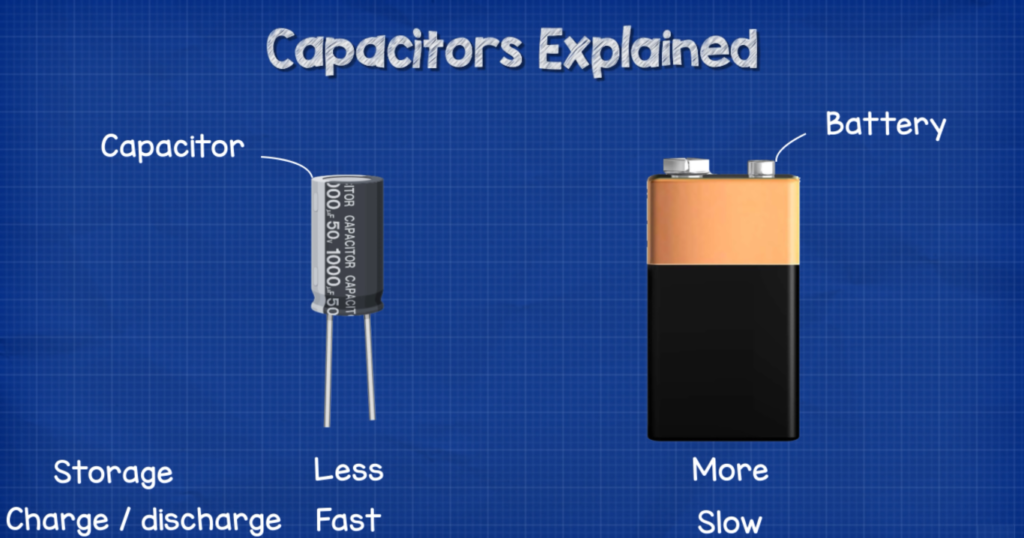
Characteristics of Capacitor and Inductor
Capacitors and inductors have different characteristics that make them useful in different situations. Capacitors store electricity by accumulating a charge, while inductors generate magnetic fields.
In addition, capacitors affect the voltage of a circuit, while inductors affect the current. Capacitors usually block high frequencies while low frequencies can pass through, while inductors usually reduce the amplitude of high frequencies. Finally, capacitors are usually used as filters, while inductors can be used to reduce noise. Knowing these characteristics can help you in selecting the right component for your project.
FAQ
Which is the better inductor or capacitor?
The answer to this question depends on what is most important for your project. If you need something to block out noise, then a capacitor might be a good option. If you need something that can store and release energy, then an inductor might be better suited.
What is the unit of measurement for capacitors and inductors?
What are the characteristics of capacitors and inductors?
Capacitors store electricity by building up a charge. Inductors create magnetic fields. Capacitors change the voltage in a circuit, and inductors change the current.
Capacitors usually stop high frequencies from passing through, while low frequencies can go through them easily.
Inductors usually reduce the amplitude of high frequencies. Finally, capacitors are often used as filters, and inductors can be used to reduce noise.
In what applications can capacitors and inductors be used?
Capacitors and inductors can be used in many different applications such as storing power for later use, or to adjust the timing of a circuit. They can also be used to filter out noise, or to reduce the amplitude of high frequencies.
Capacitors and inductors are essential components in any circuit, so understanding their differences is key for selecting the right component for your project.
How can you tell an inductor from a capacitor?
The easiest way to tell an inductor from a capacitor is by looking at the component. Inductors are usually made of a coil of wire wrapped around a core, such as iron or ferrite.
Capacitors usually have two metal plates separated by an insulator (such as paper or plastic).
Where do we use capacitors and inductors?
Capacitors and inductors are used in a variety of applications, including power supplies, motors, amplifiers, timers, audio systems, and energy storage. They are also key components in many electronic circuits such as filters or oscillators.
What is the difference between inductance and capacitance?
The main difference between inductance and capacitance is that inductors create magnetic fields, while capacitors store electricity by accumulating a charge. Capacitors also affect the voltage of a circuit, while inductors affect the current.
Why would you use an inductor?
Inductors are often used to store energy, reduce noise, and adjust the timing of a circuit. They can also be used to filter out high frequencies while allowing low frequencies to pass through.
What happens if we replace capacitor with inductor?
Replacing a capacitor with an inductor can have different effects on a circuit. Inductors usually reduce the amplitude of high frequencies, while capacitors tend to block out noise.
This can cause some circuits to operate differently if the wrong component is used. It is important to understand the differences between capacitors and inductors before making any replacements or selections.
How do you identify an inductor?
Inductors are usually identified by their physical appearance. They have a coil of wire wrapped around a core, such as iron or ferrite. Knowing the features and characteristics of an inductor will help you make the right selection for your project.
Is an inductor AC or DC?
Inductors can be used for both AC and DC circuits. However, their characteristics may vary depending on the type of circuit. It is important to understand the differences between AC and DC inductors before making any selections or replacements.
What is the purpose of an inductor?
Inductors are often used in power supplies, amplifiers, timers, audio systems, and energy storage applications.
What are three uses of capacitors?
The three primary uses of capacitors are to store energy, filter out high frequencies, and reduce the amplitude of high frequencies. Capacitors can also be used in timing circuits and power supplies.
What devices use capacitors?
Capacitors are devices that have many different uses. Some common uses are in motors, audio systems, and energy storage applications. They are also used in electronic circuits to help with tasks like filtering or oscillating.
If you understand the features and characteristics of capacitors, you will be able to choose the right one for your project.
Is a battery a capacitor?
No, a battery is not a capacitor. A battery is an energy storage device that uses chemical reactions to generate electrical current. Capacitors are devices that store electricity by accumulating a charge.
Does a car have a capacitor?
Yes, most cars have capacitors. They are used in the audio system, as well as for other tasks such as timing or filtering. Knowing the features and characteristics of capacitors will help you make an informed decision when selecting the right component for your project.
How much power can a capacitor hold?
The power a capacitor can hold depends on its size and type. Generally, the larger the capacitor, the more energy it can store.
What happens if I use too big of a capacitor?
Using a capacitor that is too large can increase power consumption and heat generation. It may also affect the overall performance of the circuit, so it is important to know the features and characteristics of capacitors before making any selections or replacements.
Can you touch a capacitor?
No, you should never touch a capacitor with your bare hands. Capacitors can store a large amount of energy and touching them can cause an electric shock. If you need to replace or install a capacitor, make sure to wear protective gloves and take the necessary safety precautions.
How long do capacitors last if not used?
Capacitors can last anywhere from a few years to decades, depending on the quality of the components. Generally, capacitors with better quality components will last longer than those with lower quality components
Do capacitors last forever?
No, capacitors do not last forever. Although quality components may help extend the life of a capacitor, over time the capacity of the capacitor will decrease and eventually it will need to be replaced.
Why would you use an inductor?
Inductors are devices that store energy in a magnetic field. They are often used in applications like filters, oscillators, and transformers.
What is the benefit of a capacitor?
The benefits of capacitors are numerous. Capacitors can store energy, filter signals, and smooth out power fluctuations. They are also used in timing circuits and other applications where a steady voltage is needed.
When selecting a component for your project, it is important to understand the features and characteristics of capacitors and inductors. By understanding how these components work together, you can ensure that your circuit is working at its best.
Whether you need to replace a capacitor or install a new inductor, knowing the differences between capacitance and inductance will give you the knowledge you need to make the right selection.
Where are inductors used?
Inductors are used in many applications, including transformers, filters, oscillators, and timers. They are also used in power supplies to regulate voltage and reduce noise.
What is an inductor example?
An inductor example is a coil of wire. The inductor stores energy in its magnetic field, which can then be used for various applications such as filters, oscillators, and transformers.
Does an inductor store voltage?
No, an inductor does not store voltage. Instead, it stores energy in its magnetic field. The amount of energy stored depends on the size of the inductor and the number of turns in the coil.
Why are inductors used in AC circuits?
Inductors are used in AC circuits to control the current. They help to block out unwanted frequencies and regulate the flow of current.
What causes inductors to fail?
One of the most common causes of inductor failure is heat. When inductors are exposed to high temperatures, their magnetic fields weaken and they become less efficient.
What is the sound from the inductor?
Inductors typically produce a humming or buzzing sound when they are in use. This is due to the vibration of electrons as they flow through the coil of wire.
Knowing how inductance works and understanding the characteristics of inductors will help you choose the right component for your project, as well as maintain it in order to reduce any noise levels.
Do capacitors have noise?
Yes, capacitors can produce noise caused by electrical interference. This is usually the result of components in close proximity to each other creating an electromagnetic field.
By understanding the differences between capacitance and inductance, you can make sure that your circuit is working at its best. Knowing how these components work together will help you choose the right component for your project, as well as maintain it in order to reduce any noise levels.
Additionally, familiarising yourself with these concepts will help you to troubleshoot any issues and get the best performance from your circuit. With the right knowledge, you can find the perfect component for every application.
Useful Video: Capacitor vs Inductor – Capacitor and Inductor – Difference Between Capacitor and Inductor
Conclusion
In short, capacitors store energy in an electric field, while inductors store energy in a magnetic field. Capacitors are perfect for high-frequency signals because they can quickly change their stored energy into electrical current, whereas inductors work better with low-frequency signals.
If you want to learn more about how these components work or need help choosing the right one for your project, contact us.
We would be happy to walk you through our selection of capacitors and inductors and help you find the best solution for your needs. Thanks for reading!
References
- http://www.differencebetween.net/technology/difference-between-capacitors-and-inductors/
- https://www.elprocus.com/difference-between-capacitor-and-inductor/




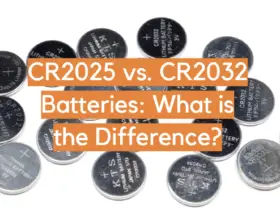
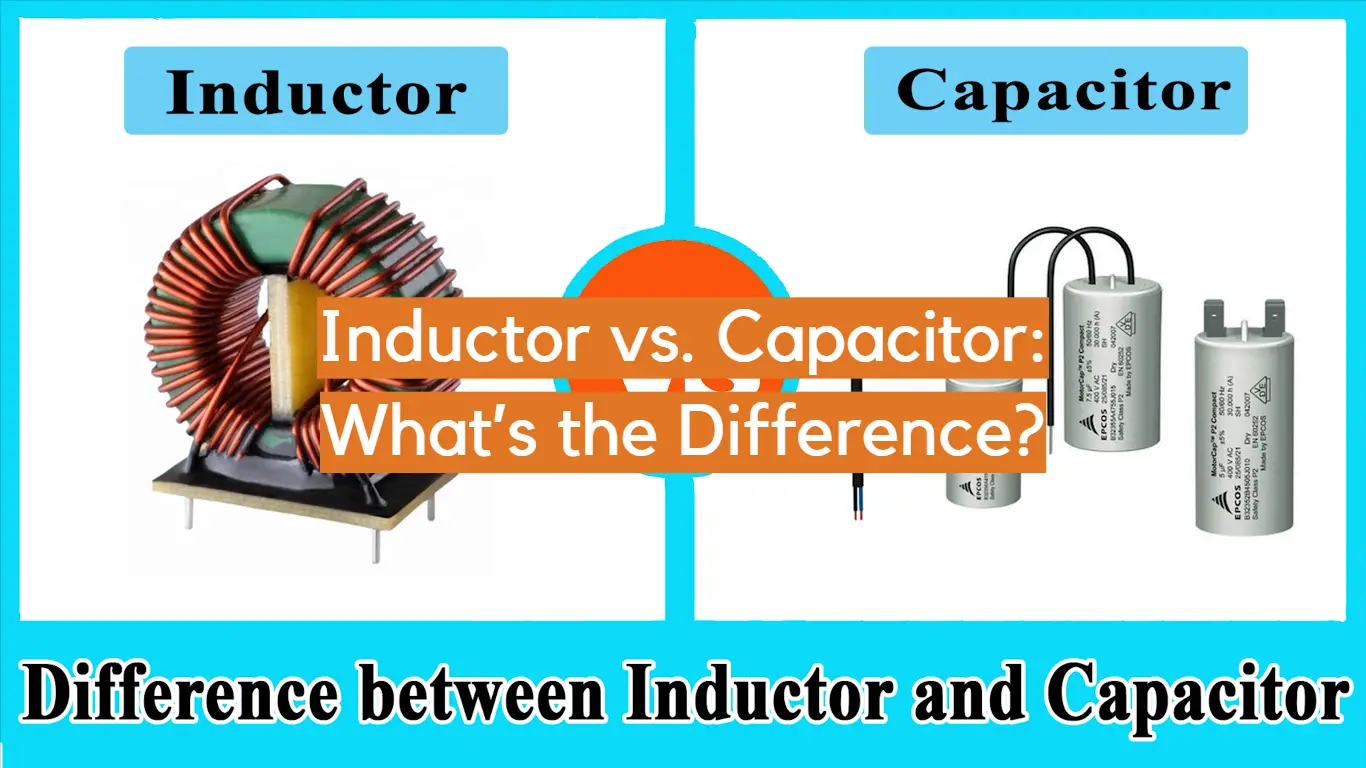




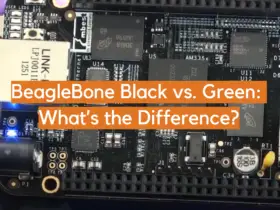
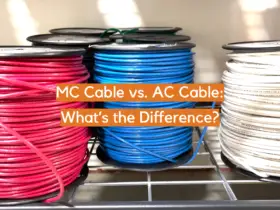

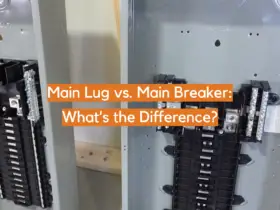
Leave a Reply